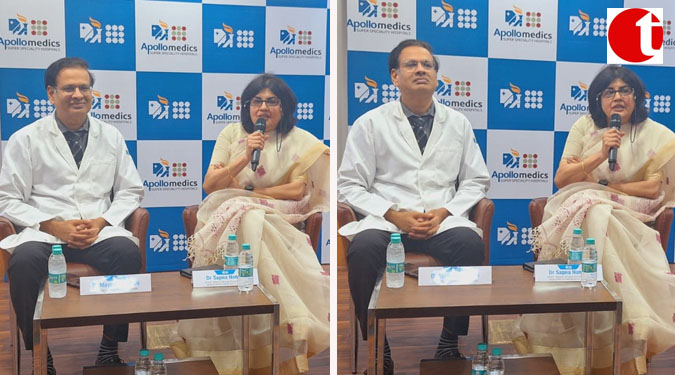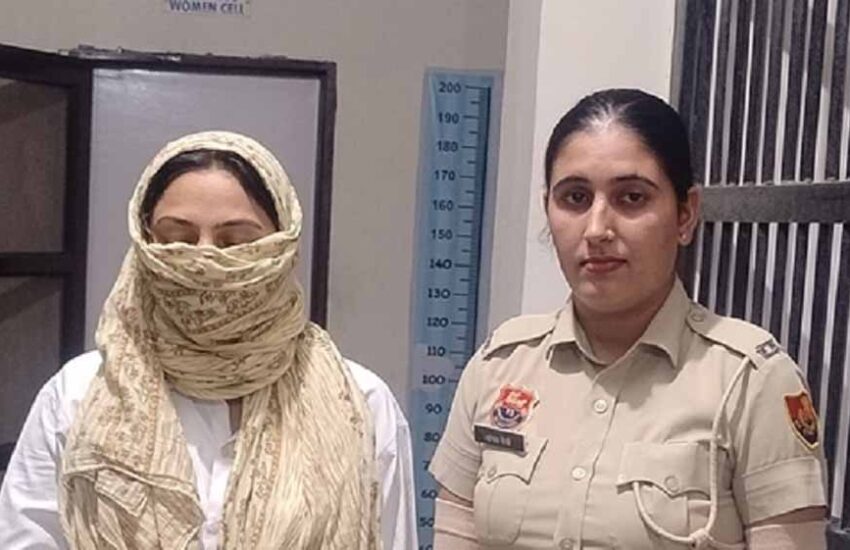• Becomes the First ever centre in UP, Bihar & Jharkhand for Proton Radiation Cancer Therapy Screening
• India’s cancer cases projected to surpass 15.7 lakh by 2025
• Rising cancer cases underscore the need for advanced care
• Apollo Proton Cancer Centre (APCC) is the first and only Proton Therapy Centre in South Asia and Middle East
TIL Desk Lucknow/ Apollomedics Super Specialty Hospital in Lucknow is taking a significant step towards revolutionizing cancer treatment by announcing the launch of the region’s first Proton Therapy screening Outpatient Department (OPD). With this patient will get the consultation and Primary screening for Advanced Proton Therapy treatment in Lucknow itself. This is a first of its kind initiative which will benefit people from UP, Bihar, Jharkhand & parts of Nepal in getting the most advanced Proton Therapy Treatment within their reach.
Renowned oncologist Dr. Sapna Nangia, serving as the Director of Head Neck & Breast and Senior Consultant, Department of Radiation Oncology, Apollo Hospitals, will lead the Proton Therapy OPD. Dr. Nangia’s extensive experience places her at the forefront of cancer care in India. She has gained invaluable expertise in proton therapy through observer programs at prestigious American institutions following which she pioneered the Proton Therapy program for Head Neck, Breast and Gynecological cancers in India.
With cancer cases projected to surpass 15.7 lakh by 2025, India faces a daunting challenge on the healthcare front. Reflecting on the gravity of India’s cancer burden, Dr. Nangia stated, “The rising incidence of cancer in India underscores the urgent need for proactive measures in improving access to treatments that improve the outcome of cancer treatment.
Proton Therapy is an advanced radiation technique using positively charged proton particles, fundamentally different from the routinely available X-ray based radiation treatments. In this treatment, the normal tissues adjacent to the tumor receive less radiation compared to X-ray based treatments and the DNA of the tumor is also impacted differently. The former results in fewer side effects and the latter in better outcomes in even in tumors resistant to radiation.
Dr Sapna Nangia noted that over the last 5 years, a large number of head neck, skull-base , breast, lung, sarcoma, prostate and gastrointestinal cancers have been successfully treated at APCC. The treatment of elderly patients and those with co-morbidities without interruption or de-escalation has been particularly gratifying. At the other end of the spectrum, reducing the risk of radiation induced second cancers in adolescents and young adults, has also been very satisfying. An added benefit of proton therapy in patients of the working age is the cascading effects of reduced toxicity on employability, quality of life and further healthcare expenses.
Dr. Mayank Somani, MD & CEO of Apollomedics Super Specialty Hospital, emphasized the hospital’s commitment to advancing healthcare solutions to meet the evolving needs of patients. He remarked, “The introduction of Proton Therapy OPD reaffirms our dedication to providing world-class treatment options and ensuring that patients receive the best possible care close to home.”
Proton Therapy offers a more targeted and less invasive treatment approach for various cancers, including head and neck, breast, liver, lung, esophageal and prostate cancers among other and Apollo Hospitals is the first Healthcare Service provider to launch it in India. Through this initiative of Proton Therapy OPD, Apollomedics aims to enhance treatment outcomes and improve the quality of life for cancer patients across the region.



